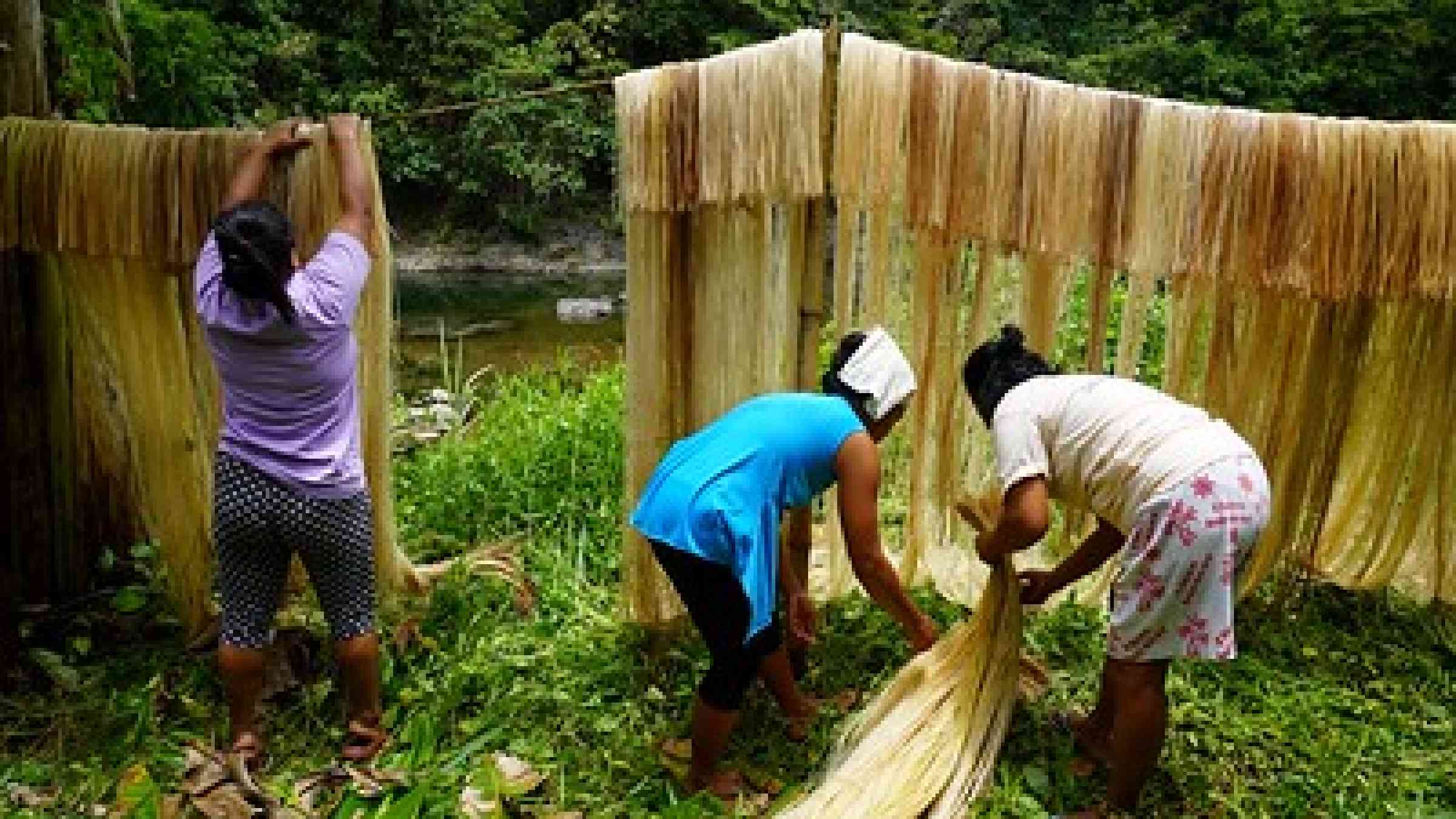Anticipating and acting early - putting communities and creativity at the heart of our learning and exchange
This in-person side event will:
- Build a shared understanding of anticipatory action, why it is an important part of Disaster Risk Reduction and how it can capture synergies with Multi-hazard Early Warning Systems development.
- Share practitioners’ experiences implementing anticipatory action for a range of hazards (e.g. floods, droughts and volcanic ashfall) across different regions of the world (Asia-Pacific, Latin America and Africa), while creatively engaging participants in an interactive learning exercise.
- Demonstrate the need to continuously learn from, engage with, and empower communities and local actors in decision-making processes around the co-design, implementation and evaluation of anticipatory action activities, as part of a comprehensive risk management approach.
- Highlight how the Anticipation Hub can help to facilitate knowledge exchange, learning and advocacy around anticipatory action, and capture synergies across longer-term disaster risk reduction and development activities.
Objectives
The session objectives are to:
- Highlight first-hand stories of the benefits of anticipatory action in saving lives, reducing impacts on livelihoods and strengthening local capacity.
- Enhance understanding of the three components of anticipatory action (triggers, early actions and financing) and how it relates to early warning and Disaster Risk Reduction through an interactive learning exercise with different regional case studies and hazards.
- Facilitate creative dialogue between community representatives, humanitarian actors, governments, and scientific partners to jointly identify how to ensure anticipatory action approaches are co-developed with local actors, empower them and meet their needs.
Speakers
- Ms. Rafi Akter, Bangladesh Red Crescent volunteer Bogura Unit-Flood Prone area, Bangladesh
- Ms. Sebongile Hlubi, Forecast-based Financing project manager, Lesotho Red Cross Society
- Mr. Jorge Arteaga López, manager, Ecuador Red Cross
- Mr. Lawrence Anthony Dimailig, Assistant Director for Disaster Monitoring & Analysis, AHA Centre
- Ms. Katarina Khoutova, Programme Policy Officer, World Food Programme Nepal
- Ms. Ana Dizon, FOREWARN Coordinator Philippines, Start Network
- Mr. Ahmed Amdihun, PhD, Programme Coordinator, Disaster Risk Management, IGAD Climate Predictions and Applications Centre (ICPAC)
- Mr. Bipul Neupane, Director of Disaster Management, Nepal Red Cross Society
- Ms. Shanna McClain, Disasters Program Manager, NASA and co-chair Anticipation Hub Earth Observation Working Group
- Mr. Farai Shonhai, Disaster Risk Management & Climate Change Adaptation Technical Lead, Plan Zimbabwe
- Ms. Lisa Robinson, Head of Advisory & Policy, BBC Media Action
- Mr. Mathias Amling, Senior Desk Officer, German Federal Foreign Office
Facilitators
- Kara Devonna Siahaan, Head of the Anticipation Hub
- Raymond Zingg, Regional Forecast-based Financing Coordinator for Asia-Pacific/ Anticipation Hub
- Catherine Jones, Anticipatory Action Lead for Asia & the Pacific, FAO
Documents
Learn more
Where do we stand
Many of the world’s disasters are predictable, and the science used to forecast them is increasingly reliable, enabling actors to put in place the actions and financing required to act before a disaster hits. Early actions include, for instance, providing populations at risk with cash, sanitation and hygiene kits and shelter toolkits ahead of the predicted shock. Triggers are the risk-informed forecast-based thresholds for a particular hazard that will release the pre-agreed financing and set the actions underway.
Anticipatory action approaches are now being implemented in over 60 countries by the Red Cross Red Crescent (RCRC) Network, Start Network, the WFP, FAO, OCHA and others. There is growing evidence, investment and political commitment for scaling up and mainstreaming into national Disaster Risk Management systems. Anticipatory action can address disaster risk and climate change, bridging humanitarian and development agendas. It supports the achievement of the Sendai Framework Target G to substantially increase the availability of and access to multi‑hazard early warning systems and disaster risk information and assessments to the people by 2030.
Anticipatory action aims to be locally led and empower local actors, but there is a growing need to further engage communities and local actors to build stronger collaboration between humanitarian actors, governments, scientific partners and others to ensure we are meeting their needs and continuously learning.
The mission of the Anticipation Hub is to facilitate knowledge exchange, learning, guidance and advocacy for practitioners, scientists and policymakers that supports them to jointly work with at-risk communities to collectively achieve anticipatory action. To do so, it brings together 90+ partners across the RCRC Movement, universities, research institutes, (i)NGOs, UN agencies, governments, donors, and network initiatives.
Session guiding questions
- What are the practical benefits of anticipatory action as experienced by at-risk communities?
- What are the different components of anticipatory action and how do they connect with Disaster Risk Reduction and Early Warning Systems?
- Who needs to collaborate to ensure that anticipatory action initiatives are engaging with, and meeting the needs of communities?
- What is the Anticipation Hub and how can it help to facilitate knowledge exchange, learning, guidance and advocacy to meet end-user needs?

Agenda
Location
BNDCC 1-1st Floor
Online access
Participation
Open to those registered for the conferenceDetails
Contact
Lydia Cumiskey- Anticipation Hub Lydia.cumiskey@germanredcross.de Kara Siahaan, Anticipation Hub k.siahaan@drk.de